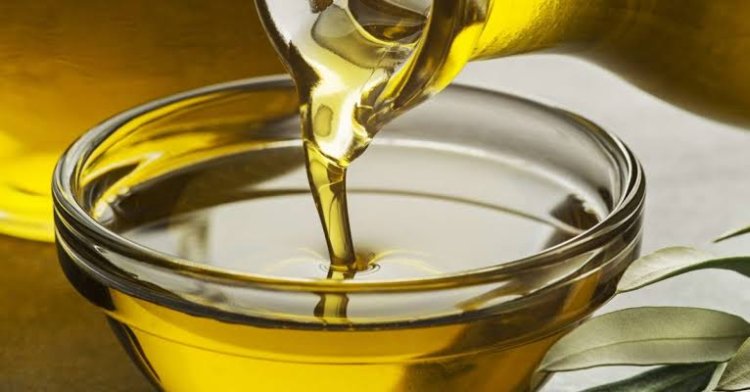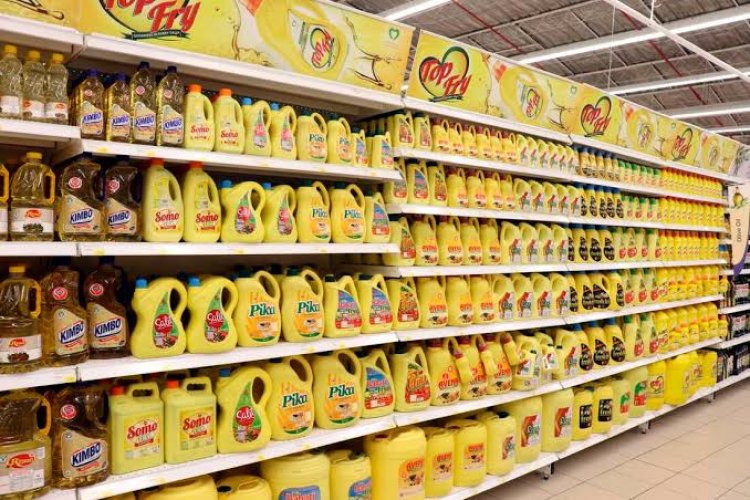Govt Orders 10 Brands Of Cooking Oil Taken Off Kenyan Markets
However, KEBS noted that the measure was not a ban on the affected brands

The Kenya Bureau of Standards (KEBS), has suspended 10 brands of edible oil and cooking fats.
The regulator stated in a letter to the Retail Traders Association of Kenya (RETRAK) by KEBS Director for Market Surveillance Peter Kaigwara that the brands were suspended on Friday, September 22 for failing to fulfill the acceptable health standards.
However, KEBS noted that the measure was not a ban on the affected brands, but rather a temporary suspension to protect consumers from potentially harmful products and to protect producers’ economic interests.

Inside a supermarket along Thika Road. /MARVIN CHEGE.VIRALTEAKE
“Kindly note that this is not a ban on the brands but a temporary suspension to allow the manufacturers of the non-compliant brands to initiate and put in place effective corrective action under KEGS supervision to ensure that the non-compliant brands comply with the requirements of the respective Kenya Standards and Standards Act Cap 496, Laws of Kenya before being allowed back into the market,” read the letter in part.
The ten include; Bahari Fry, Fresh Fri, Fresh Fri with Garlic Oil, Fry Mate, Gold and Pure Olive Gold, Postman, Rina, Salit, Tilly and Top Fry.
KEBS also asked RETRAK to ensure that the products are taken off the shelves in all outlets until compliance has been achieved.
“The purpose of this letter is to bring to your attention the below listed brands of non-compilant edible oils and fats that failed to meet the requirements of the standard and to request your good office to notify your members to recall these brands and remove them from the supply chain from your members outlets across the country,” the letter read.
KEBS further stated that the withdrawn products would be subjected to being verified before they are restocked in the Kenyan markets. It also provided a method Kenyans can use to check the validity of the products.
"One should send the code (numbers) underneath the Standardization Mark logo to 20023 (i.e. type message SM# Code or ISM#code, for local and imported products respectively, and SMS to 20023) to get product manufacturing details and permit validity status.
"If the details are different, invalid or not traceable to the platform, retailers should not purchase, stock or offer for sale the products but instead report to KEBS through toll-free number 1545 during official working hours 8 am to 1 pm and 2 pm to 5 pm from Monday to Friday," read the statement in part.
Consumers Federation of Kenya (COFEK), an independent consumer protection organization, has encouraged consumers to stop using the aforementioned items.
The directive came as consumers were appearing to be expecting the price of cooking oil to drop after the supply glitch affecting crude palm started to reduce.
Crude palm price is said to have undergone significant correction globally, in turn occasioning prospects of more robust domestic export demand from the world’s top suppliers, Malaysia and Indonesia.
The demand prompted investors to open new positions after a selloff earlier in September that would send prices to an over 14-month low as revealed by Trading Economics. Malaysian palm oil exports as of this month have risen between 9.3 per cent and 16.2 per cent.
The benchmark futures for crude palm oil fell by about 25.6 per cent, from $1,040 (Ksh125,081) per metric tonne last month to read at $771.78 (Ksh92,960) early this month.
The Kenya Association of Manufacturers (KAM) in a statement revealed that oil prices in recent past months had significantly dropped and the trend is expected to grow into the coming months.

Cooking oil being sold at a supermarket. /BUSINESS DAILY
“In recent months, the price of crude palm oil (CPO) has dropped. However, the current stocks in the market were manufactured using expensive CPO. As such, the lower prices shall be reflected in the market once this is cleared,” KAM said, however warning that the prices would not be lowered to the ones earlier.
There has been a subsequent rise in oil prices since February. Averagely, a litre moved from Ksh346 in February, Ksh430 in March, Ksh408 in April to Ksh455 in June.
This came up from Ksh303 in 2021 and Ksh206 in 2020, meaning Kenyans have been paying double the price for the past two years.






